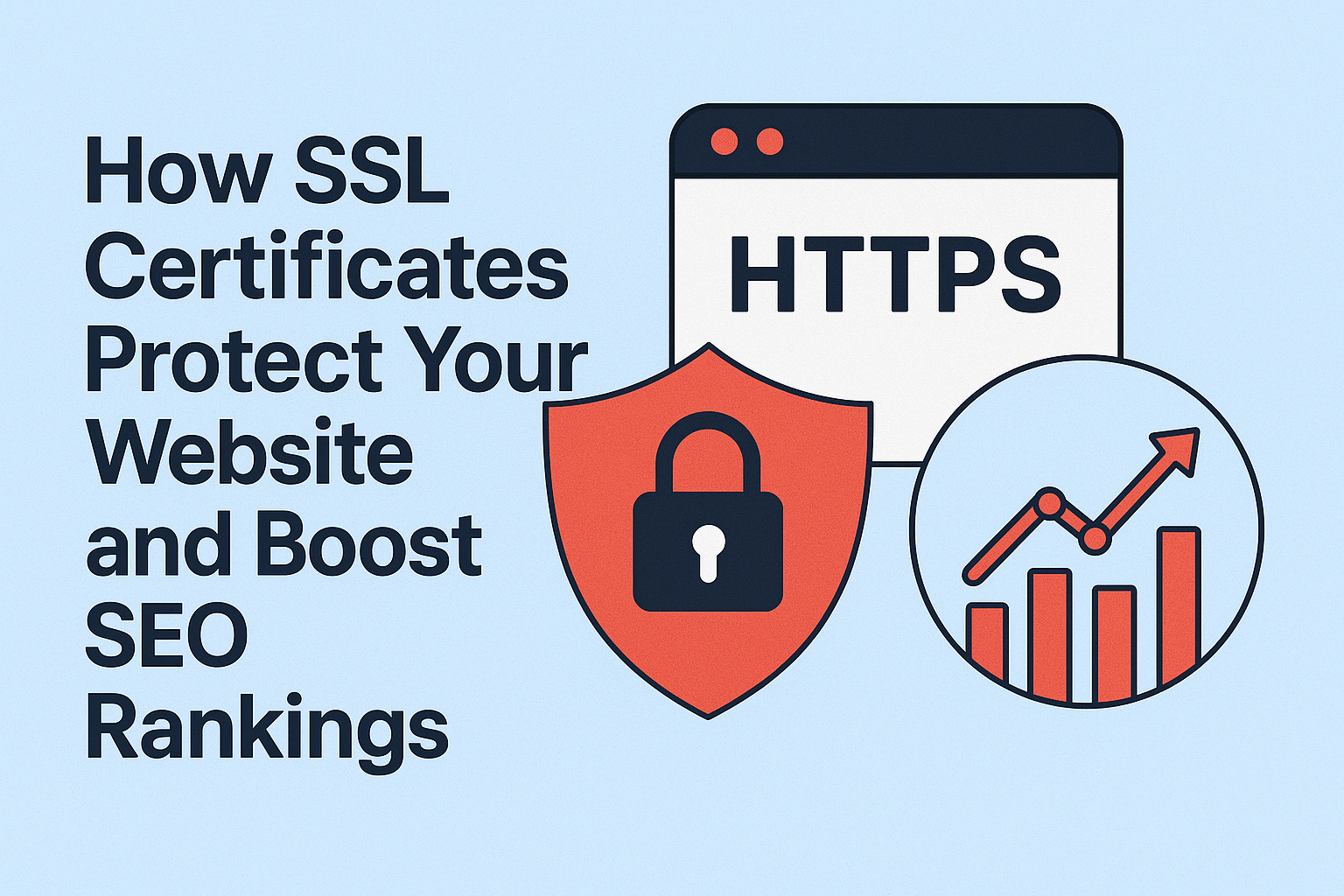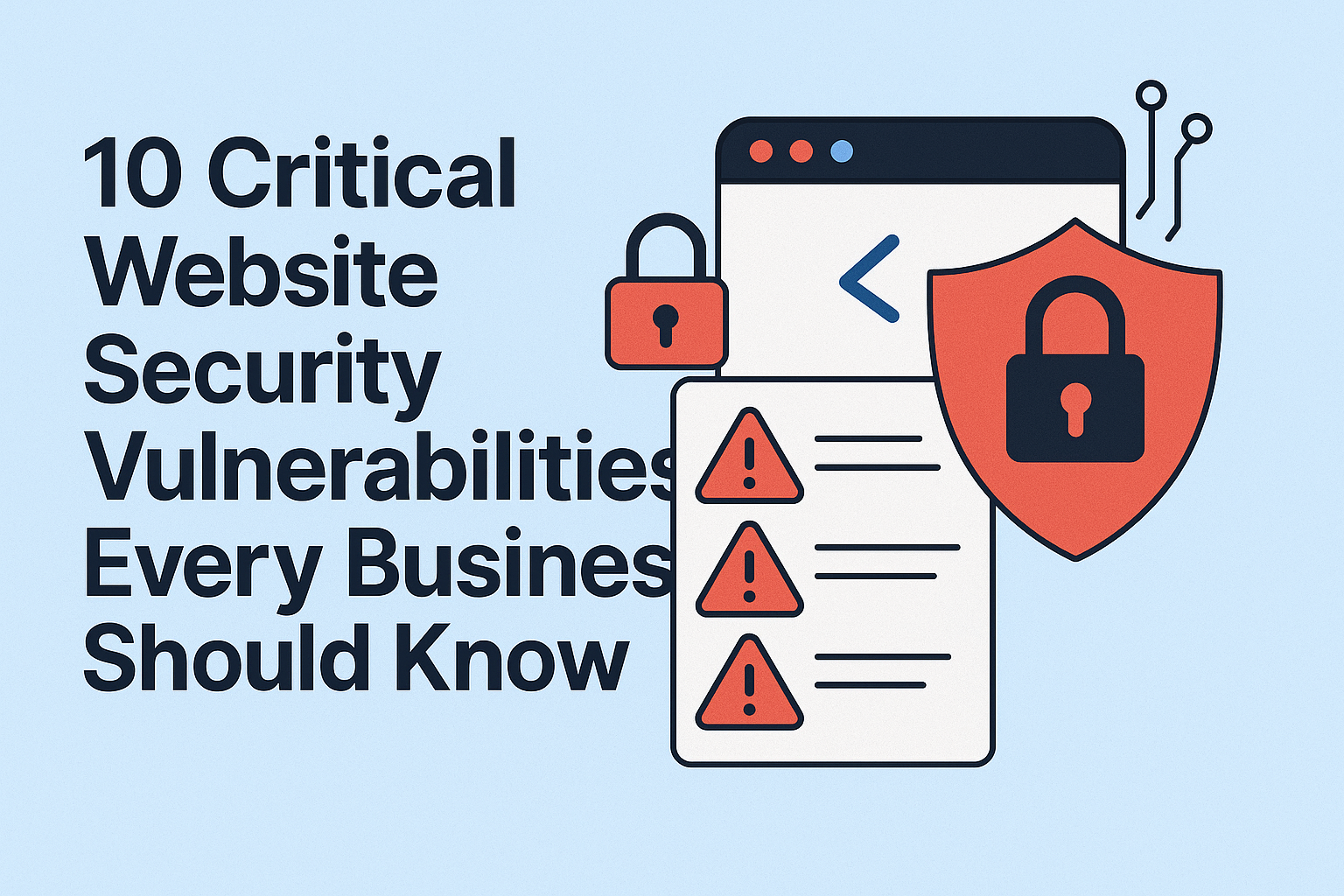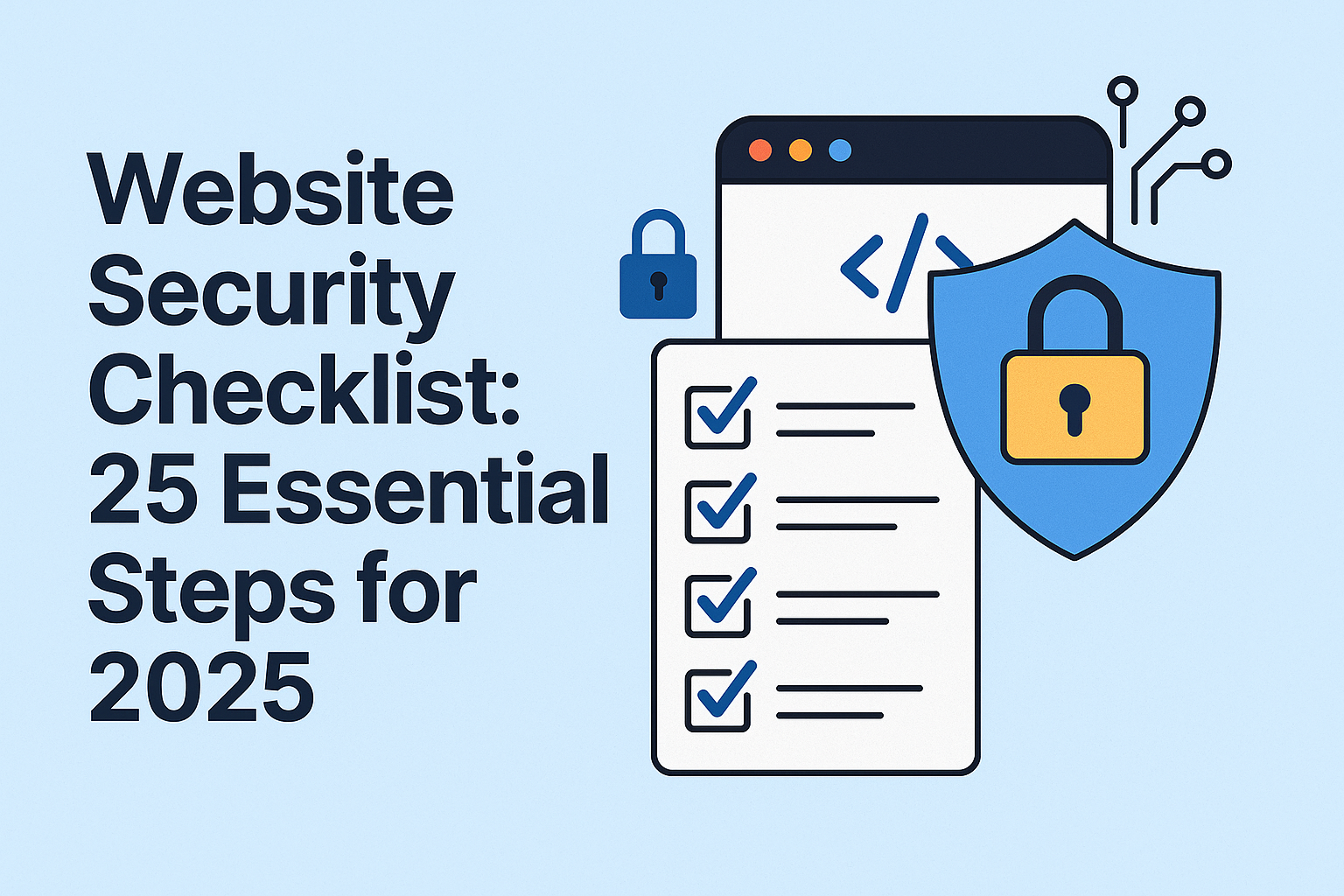How SSL Certificates Protect Your Website and Boost SEO Rankings
Discover why SSL certificates are essential for both security and search engine optimization, and how they can improve your website's performance.

Introduction: Why SSL Matters for Every Website
SSL certificates are no longer optional. In today's digital landscape, they are a must-have for any business that values security, customer trust, and search engine visibility. But what exactly is SSL, and why does it matter so much for your website's success?
What Is an SSL Certificate?
SSL (Secure Sockets Layer) certificates are digital credentials that authenticate your website's identity and enable encrypted connections between your server and your visitors' browsers. When you see the padlock icon and "https://" in the address bar, that's SSL at work.
- Key benefit: SSL ensures that data sent between your website and your users is private and secure from prying eyes.
How SSL Protects Your Website and Users
Without SSL, sensitive information like login credentials, payment details, and personal data can be intercepted by attackers. SSL provides three core protections:
- Encryption: All data is scrambled during transmission, making it unreadable to anyone who intercepts it.
- Authentication: SSL verifies your website's identity, so users know they're connecting to the real you—not a fake.
- Data Integrity: SSL prevents data from being tampered with or corrupted in transit.
SecureVibing's automated scans check your SSL implementation and alert you to any weaknesses or misconfigurations, so you never leave your users exposed.
SSL and SEO: A Hidden Ranking Factor
Did you know that Google uses HTTPS as a ranking signal? Websites with SSL certificates get a boost in search results, while those without may be flagged as "Not Secure."
- Trust and Click-Through: The padlock icon increases user confidence, leading to higher click-through rates and lower bounce rates.
- Referrer Data: With HTTPS, you retain valuable analytics data about your visitors' sources.
- Browser Warnings: Modern browsers warn users away from non-SSL sites, which can cost you traffic and sales.
SecureVibing helps you maintain a strong SEO foundation by ensuring your SSL is always up to date and properly configured.
Types of SSL Certificates: Which Do You Need?
There are several types of SSL certificates, each suited to different needs:
- Domain Validated (DV): Basic encryption for single domains—ideal for blogs and small sites.
- Organization Validated (OV): Includes business verification—best for company websites.
- Extended Validation (EV): Highest trust level, displaying your company name in the browser—perfect for e-commerce and high-profile brands.
Not sure which to choose? SecureVibing's recommendations are tailored to your business and security needs.
Best Practices for SSL Implementation
- Redirect all HTTP traffic to HTTPS
- Update all internal links to use HTTPS
- Submit an HTTPS sitemap to search engines
- Monitor certificate expiration dates
- Enable HTTP Strict Transport Security (HSTS)
SecureVibing's automated checks ensure you never miss a critical SSL update or configuration step.
Common SSL Mistakes (and How to Avoid Them)
- Letting certificates expire
- Mixed content warnings (loading HTTP resources on HTTPS pages)
- Incorrect redirects or missing HSTS
- Using self-signed or untrusted certificates
SecureVibing's platform monitors your SSL status and notifies you instantly if something goes wrong—so you can fix issues before they impact your users or SEO.
Conclusion: Secure, Trusted, and Search-Ready
SSL certificates are the foundation of a secure, trustworthy, and high-performing website. They protect your users, boost your SEO, and build confidence in your brand. With SecureVibing, you can automate SSL checks, receive expert recommendations, and ensure your site is always protected—so you can focus on growing your business.
Ready to Secure Your Website?
Put these security insights into action. Start with a comprehensive security scan of your website.
Start Free Security ScanRelated Articles

10 Critical Website Security Vulnerabilities Every Business Should Know
Learn about the most common website security threats that could compromise your business and how to protect against them.

Website Security Checklist: 25 Essential Steps for 2025
A comprehensive security checklist covering everything from basic protection to advanced security measures every website owner should implement.